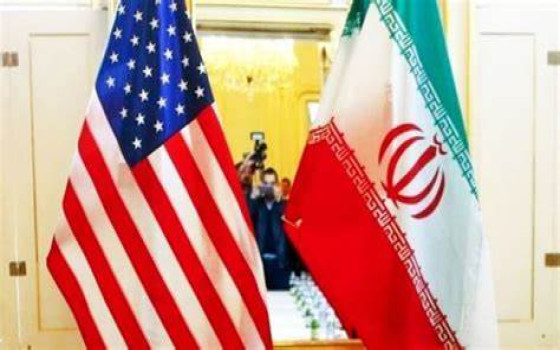
Coinciding with the visit of the head of the International Atomic Energy Agency to Tehran, Rome announced that it will host the second round of Iranian-US negotiations on the nuclear program.

- Europe and Arabs
- Thursday , 17 April 2025 7:10 AM GMT
Capitals: Europe and the Arab World
The Islamic Republic of Iran confirmed that the second round of negotiations over its nuclear program with Washington will be held next Saturday in Rome, after confusion over the host country. According to the Brussels-based Euronews website, Iranian state television stated that the upcoming talks, to be held in Italy, will not eliminate the role of the Sultanate of Oman as a mediator. The announcement coincided with other news, stating that Iranian President Masoud Pezeshkian had accepted the resignation request submitted by Mohammad Javad Zarif, Tehran's main negotiator in the 2015 nuclear agreement.
The presidential statement read: "Pezeshkian emphasized that due to some issues, his administration can no longer benefit from Zarif's valuable knowledge and experience."
In return, the president appointed Mohsen Esmaili, 59, as the new vice president for strategic affairs. Esmaili is known as a political moderate and legal expert. The official approval of the senior negotiator's resignation request coincided with preparations for the second round of negotiations, which were marred by disagreement over the host country.
Rome initially announced its willingness to host, but Tehran insisted on Tuesday that the Sultanate of Oman would be the host, as with the first round.
The United States, for its part, has not announced the venue for the second round, although President Donald Trump held a phone call with Omani Sultan Haitham bin Tariq while the latter was visiting the Netherlands.
The emergence of such blatant disagreements between Tehran and Washington on "fundamental issues," such as the format of the negotiations (whether direct or not) or the host country, gives the impression of a high degree of tension between the two sides, despite both initially describing the talks as positive and constructive.
In a statement on Wednesday, Iranian Foreign Minister Abbas Araqchi warned the United States against adopting what he described as "contradictory" positions during the talks. This warning was understood as a response to statements by US Middle East envoy Steve Witkoff, who this week hinted at the possibility of Iran returning to 3.67% uranium enrichment, as was the case in the 2015 nuclear agreement. However, he later backtracked, saying, "No deal with Iran will be concluded unless it is one in accordance with Trump's vision."
Witkoff wrote on Twitter: "Iran must halt and eliminate its uranium enrichment and nuclear weapons program. It is essential for the world to make a firm, fair, and lasting agreement, and this is what President Trump has asked me to do."
Araghchi, for his part, stressed that his country is prepared to "create an atmosphere of trust in the face of concerns, but the principle of enrichment is non-negotiable."
Ali Shamkhani, an advisor to Supreme Leader Ali Khamenei, wrote on Twitter: "The continuation of external threats and placing Iran under conditions of military attack could lead to deterrent measures such as expelling IAEA inspectors and halting cooperation with them." Meanwhile, the head of the International Atomic Energy Agency, Rafael Mariano Grossi, arrived in Tehran on Wednesday for talks that may be relevant to the agency's inspectors' powers at Iranian facilities if an agreement is reached. Iran had threatened days earlier to suspend cooperation with the UN agency if the United States continued to pressure it, including threats of military force, to ensure the negotiations succeed.












No Comments Found